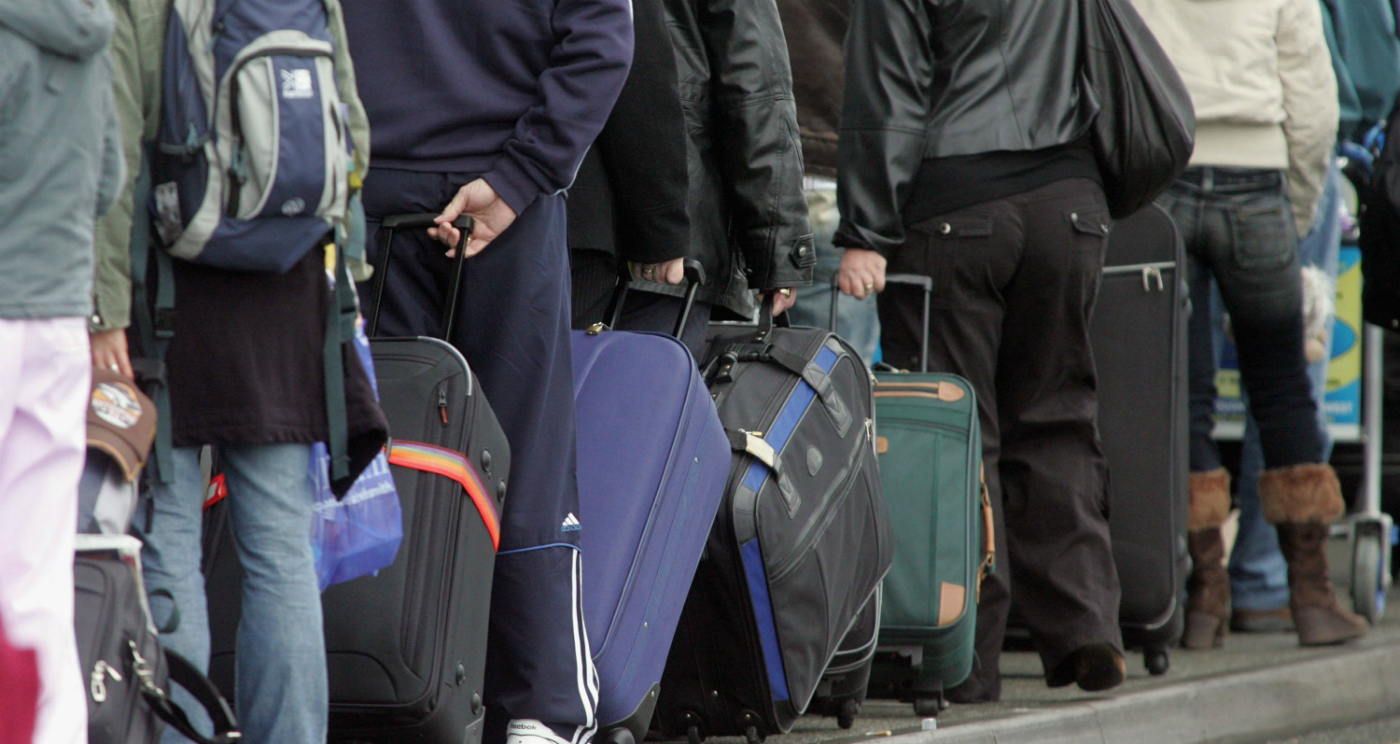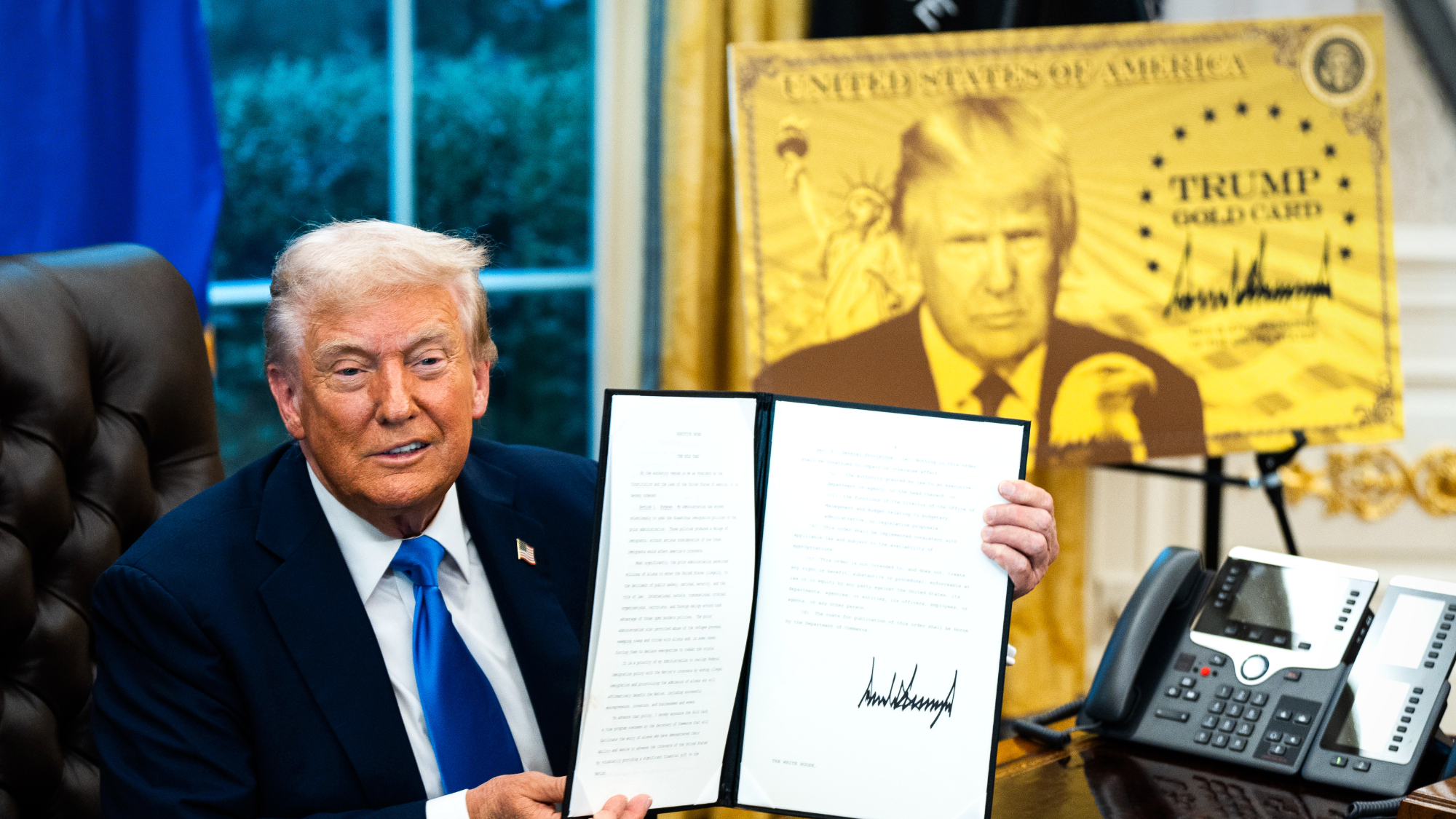Britons facing EU tourism fee post-Brexit
European sources say Brussels planning to make visitors from UK complete online applications

A free daily email with the biggest news stories of the day – and the best features from TheWeek.com
You are now subscribed
Your newsletter sign-up was successful
British tourists who want to visit Continental Europe following Brexit may face a mandatory fee and online application process, according to reports.
The claim comes after Theresa May announced on Monday at the Conservative Party Conference that Europeans seeking to visit the UK on holiday post-Brexit would “have to submit to security and criminal records checks before they arrive”.
An anonymous source in Brussels told The Times that the British prime minister’s plan would “automatically result in British citizens having to participate in the European Union’s new travel authorisation system”, due to come into effect in 2021.
The Week
Escape your echo chamber. Get the facts behind the news, plus analysis from multiple perspectives.

Sign up for The Week's Free Newsletters
From our morning news briefing to a weekly Good News Newsletter, get the best of The Week delivered directly to your inbox.
From our morning news briefing to a weekly Good News Newsletter, get the best of The Week delivered directly to your inbox.
May’s proposal is widely viewed as an attempt to streamline access to the UK for citizens of so-called “low-risk countries”, Sky News reports. “EU citizens currently get fast-tracked through e-gates while tourists or businessmen from countries like Japan and Australia have to queue for passport control,” the news site explains.
Talking to BBC Radio 4’s Today programme this week, the PM said: “The question of business travel, of tourism, will be part of negotiations. We’ve put forward a proposal which is based on a reciprocal arrangement. We’re looking to negotiate movement of people for those purposes.”
But the EU source told The Times that British citizens may have to apply online before being allowed to travel, along with paying a €7 (£6.20) fee for authorisation lasting up to three years.
“The system is similar to that used in the United States,” the newspaper adds.
A free daily email with the biggest news stories of the day – and the best features from TheWeek.com
The source said: “The new migration regime is for the UK to set. We have two principles in this: reciprocity and also non-discrimination between EU nationals.”
Guy Verhofstadt, the European Parliament’s Brexit coordinator, has criticised the UK government’s plans to end freedom of movement and adopt a skills-based migration system, under which low-skilled EU citizens would be excluded from coming to work in the UK.
“We will never accept discrimination based on skills and nationality,” he said. “We will never give in and undermine the principles of our union. We will never undermine the principles of the European project to rescue a political party in Britain who is not even capable to find a common line on the exit of the mess Brexit.”
-
 The ‘ravenous’ demand for Cornish minerals
The ‘ravenous’ demand for Cornish mineralsUnder the Radar Growing need for critical minerals to power tech has intensified ‘appetite’ for lithium, which could be a ‘huge boon’ for local economy
-
 Why are election experts taking Trump’s midterm threats seriously?
Why are election experts taking Trump’s midterm threats seriously?IN THE SPOTLIGHT As the president muses about polling place deployments and a centralized electoral system aimed at one-party control, lawmakers are taking this administration at its word
-
 ‘Restaurateurs have become millionaires’
‘Restaurateurs have become millionaires’Instant Opinion Opinion, comment and editorials of the day
-
 Should the EU and UK join Trump’s board of peace?
Should the EU and UK join Trump’s board of peace?Today's Big Question After rushing to praise the initiative European leaders are now alarmed
-
 How corrupt is the UK?
How corrupt is the UK?The Explainer Decline in standards ‘risks becoming a defining feature of our political culture’ as Britain falls to lowest ever score on global index
-
 The high street: Britain’s next political battleground?
The high street: Britain’s next political battleground?In the Spotlight Mass closure of shops and influx of organised crime are fuelling voter anger, and offer an opening for Reform UK
-
 EU-Mercosur mega trade deal: 25 years in the making
EU-Mercosur mega trade deal: 25 years in the makingThe Explainer Despite opposition from France and Ireland among others, the ‘significant’ agreement with the South American bloc is set to finally go ahead
-
 Biggest political break-ups and make-ups of 2025
Biggest political break-ups and make-ups of 2025The Explainer From Trump and Musk to the UK and the EU, Christmas wouldn’t be Christmas without a round-up of the year’s relationship drama
-
 Who is paying for Europe’s €90bn Ukraine loan?
Who is paying for Europe’s €90bn Ukraine loan?Today’s Big Question Kyiv secures crucial funding but the EU ‘blinked’ at the chance to strike a bold blow against Russia
-
 ‘The menu’s other highlights smack of the surreal’
‘The menu’s other highlights smack of the surreal’Instant Opinion Opinion, comment and editorials of the day
-
 $1M ‘Trump Gold Card’ goes live amid travel rule furor
$1M ‘Trump Gold Card’ goes live amid travel rule furorSpeed Read The new gold card visa offers an expedited path to citizenship in exchange for $1 million